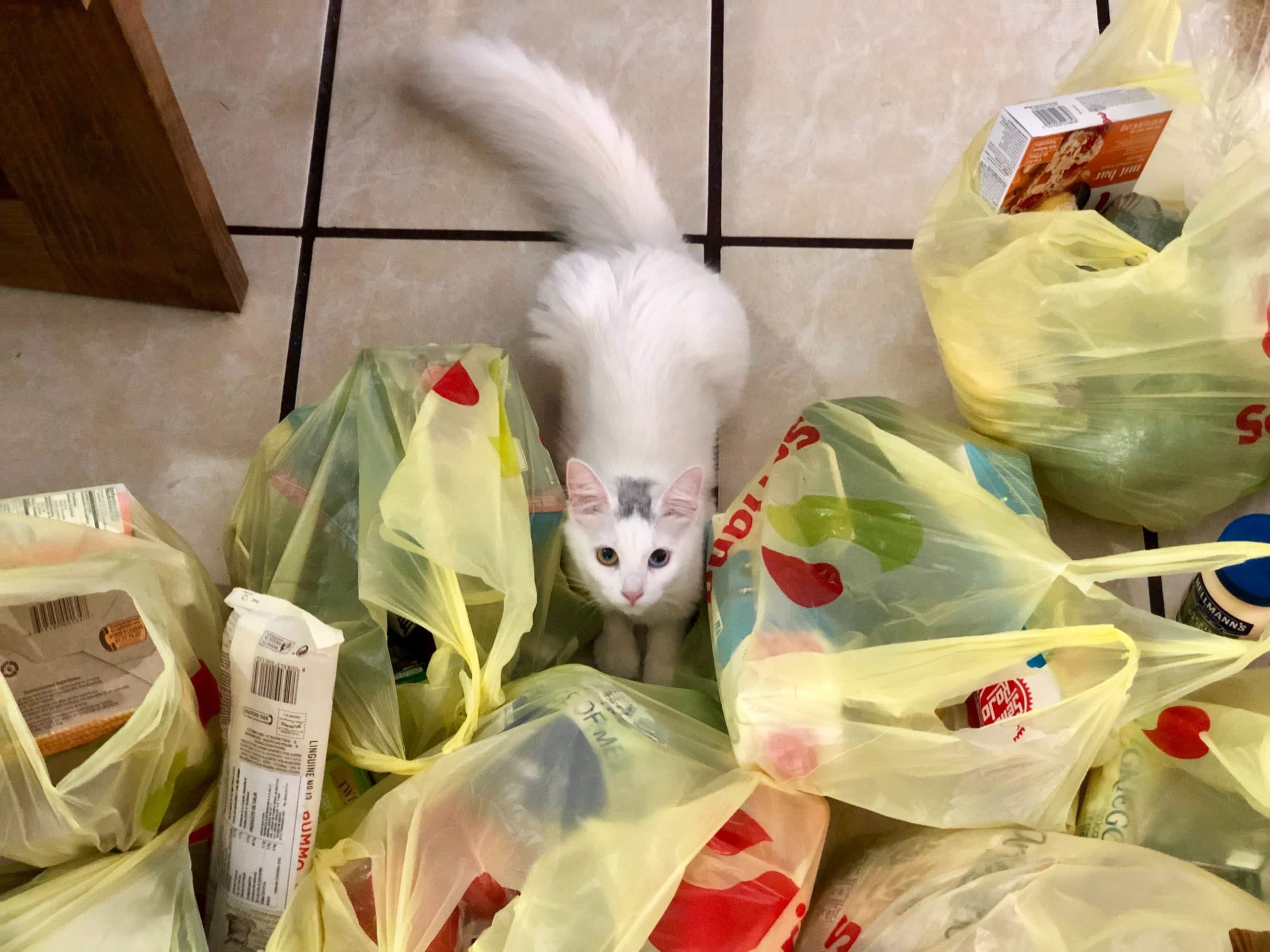In this day and age, there is no reason to be using plastic bags in commerce anymore. The convenience use and disposal of plastic bags is one of the most wasteful social behaviors we’ve created. Look around next time you’re outside, driving down the road, or walking through a school parking lot, and you are likely to see the remnants of this dirty behavior.
The history of how plastic bags became mainstream is one of significant industry influence. According to an article published in The Atlantic, in the 1960s, plastics were just becoming popular. Polyethylene, which today is one of the world’s most ubiquitous plastics, had been created in 1898, and then again in 1933. But it wasn’t until 1953 that anyone figured out how to make high-density polyethylene—the plastic that’s identified in the recycling system as No. 2.
What is more interesting is that by the end of 1985, 75% of supermarkets were offering plastic bags to their customers. Customers still preferred paper bags—plastic held just 25 percent of the market—but Mobil was working to change that. “The last stronghold is the grocery sack bag,” an executive told the Los Angeles Times, “and now we are going after that.” Within the next decade, the plastic bag had captured 80 percent of the market.
According to Conserving Now, the problem in the U.S. alone is enormous: the Environmental Protection Agency reports that over 380 billion plastic bags, sacks, and wraps are consumed in the U.S. each year.
According to The Wall Street Journal, the U.S. goes through 100 billion plastic shopping bags annually. (The estimated cost to retailers is $4 billion). Four out of five grocery bags in the U.S. are now plastic. The average family accumulates 60 plastic bags in only four trips to the grocery store.
So what can you do to stop this terrible waste cycle? Consider alternatives to plastic shopping bags like paper, canvas, cotton, or jute bags, as well as baskets. The Huffington Post published twelve alternatives to plastic bags that you can check out. It’s a pretty simple lifestyle change that makes a big difference.
The reality of the situation is that with a little thought and planning, there is no need to use plastic bags anymore. A teacher of mine once reminded us that there is a fourth “R” after Reduce, Reuse, Recycle, and that is Refuse. If we all did a little more refusing of plastic bags, the world would be a healthier place.
Reality Changing Observations:
1. How can you refuse to use plastic bags?
2. Where do you use plastic bags the most?
3. What can you do to lessen the impact of plastics on our society?





